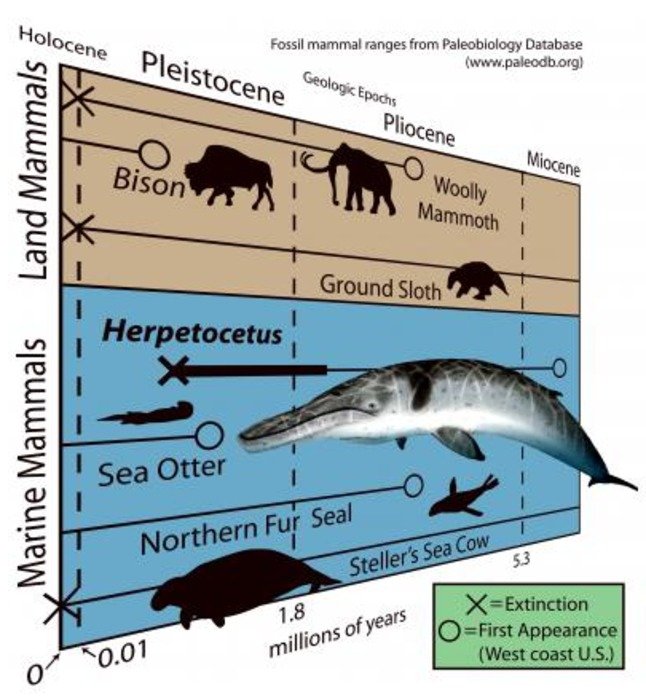OTAGO, New Zealand, April 4 (UPI) -- Analysis of a fossil of a dwarf baleen whale from Northern California reveals the species avoided extinction far longer than previously thought, scientists say.
The fossil of the 12- to 15-foot-long Herpetocetus, thought to be the last survivor of the primitive baleen whale family called cetotheres, may be only 700,000 years old, researchers at New Zealand's University of Otago reported Thursday.















